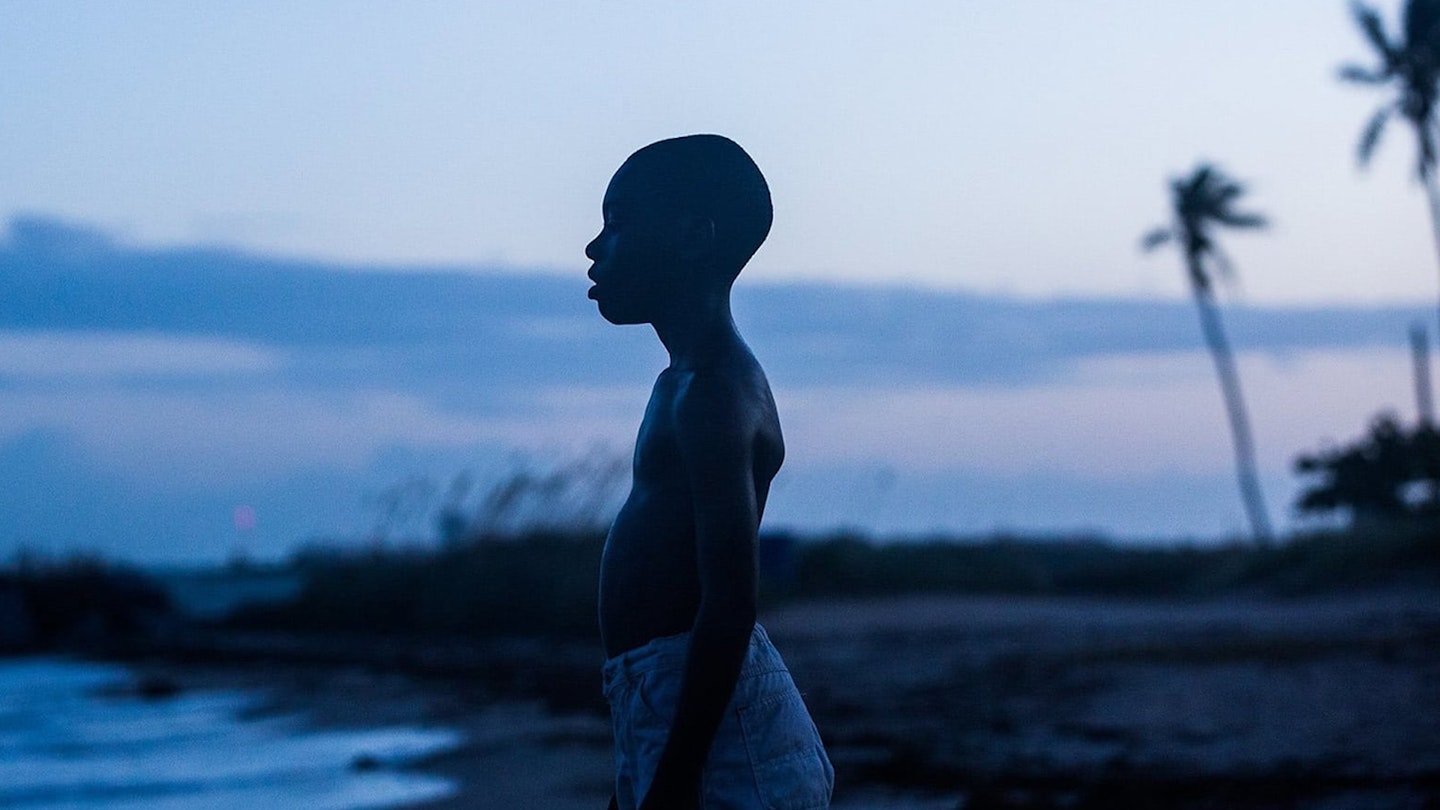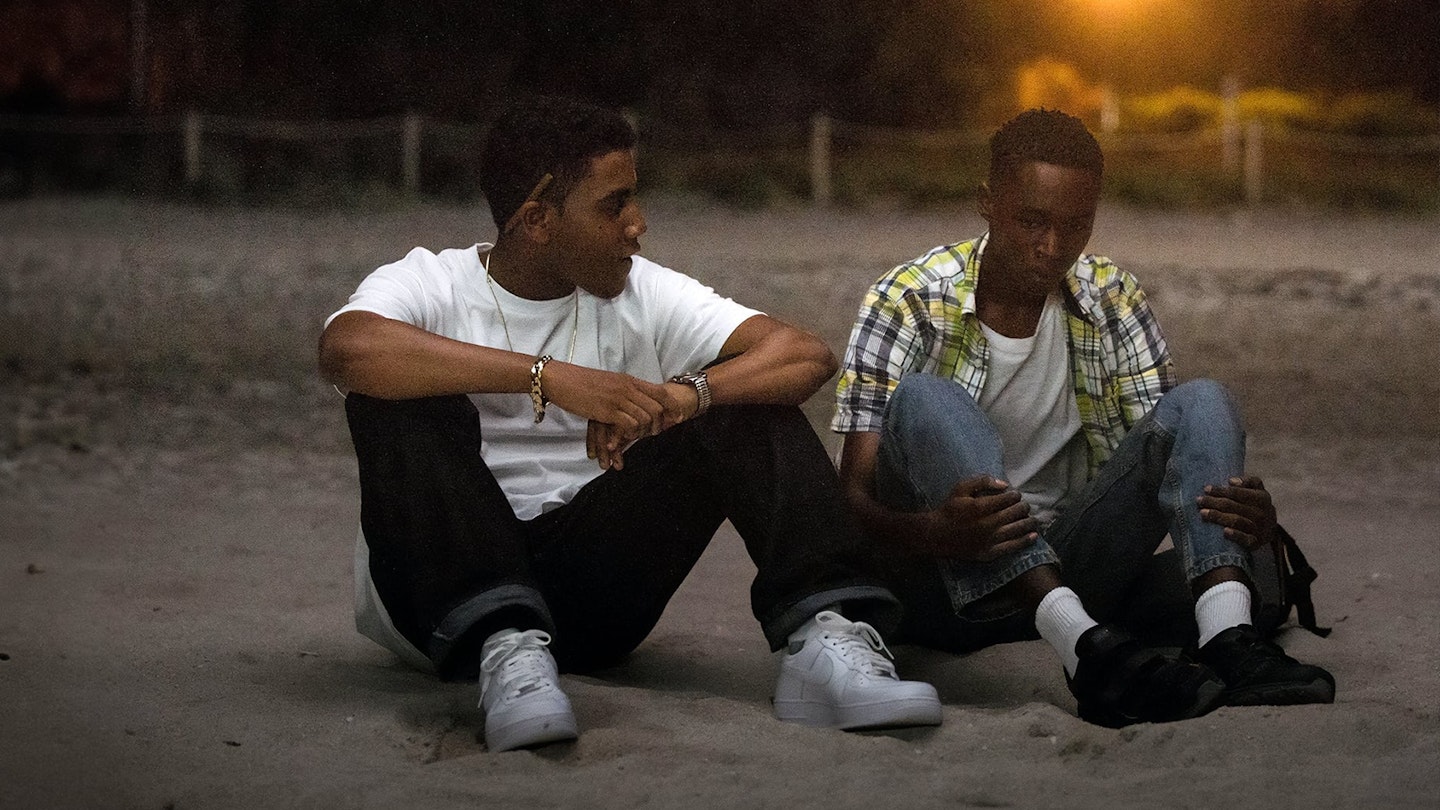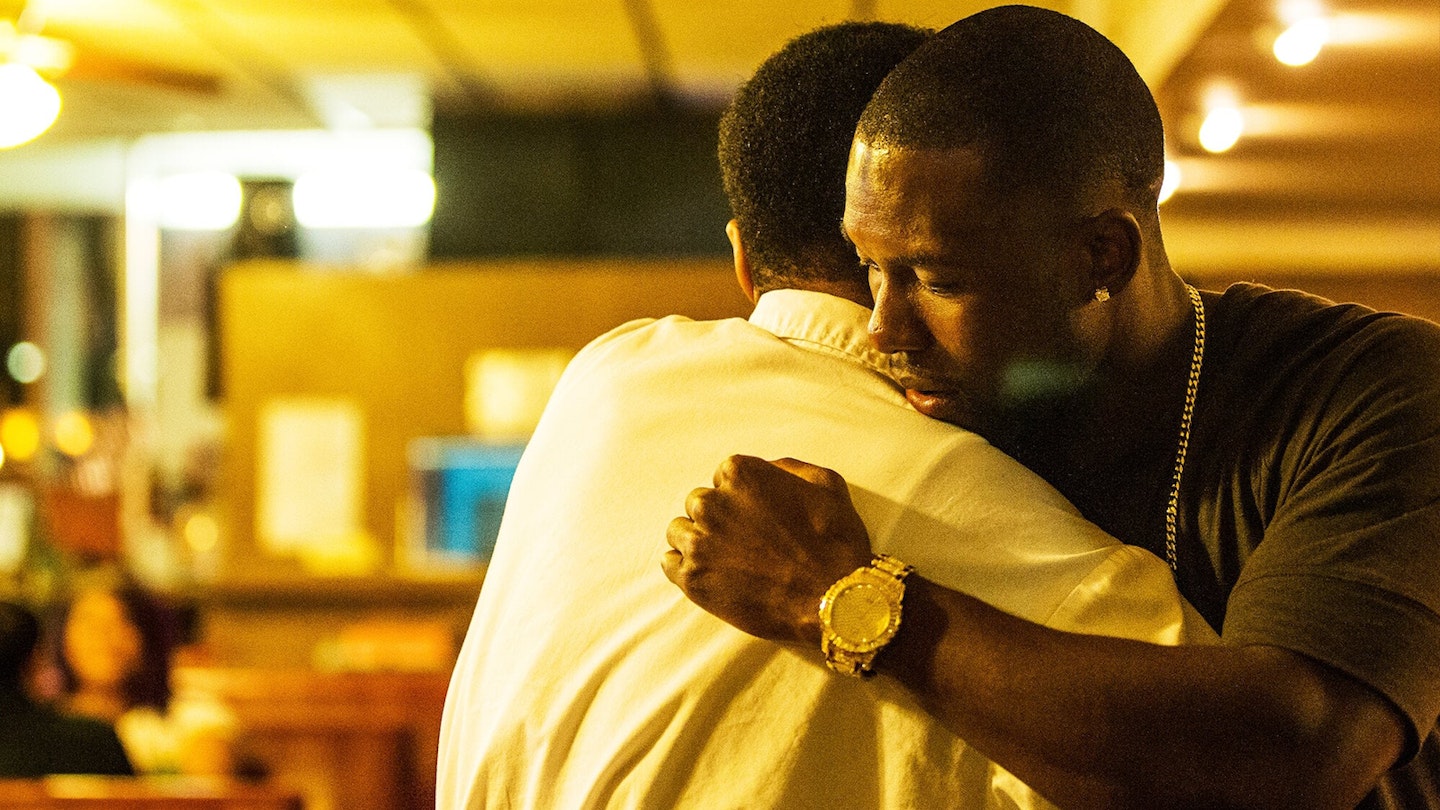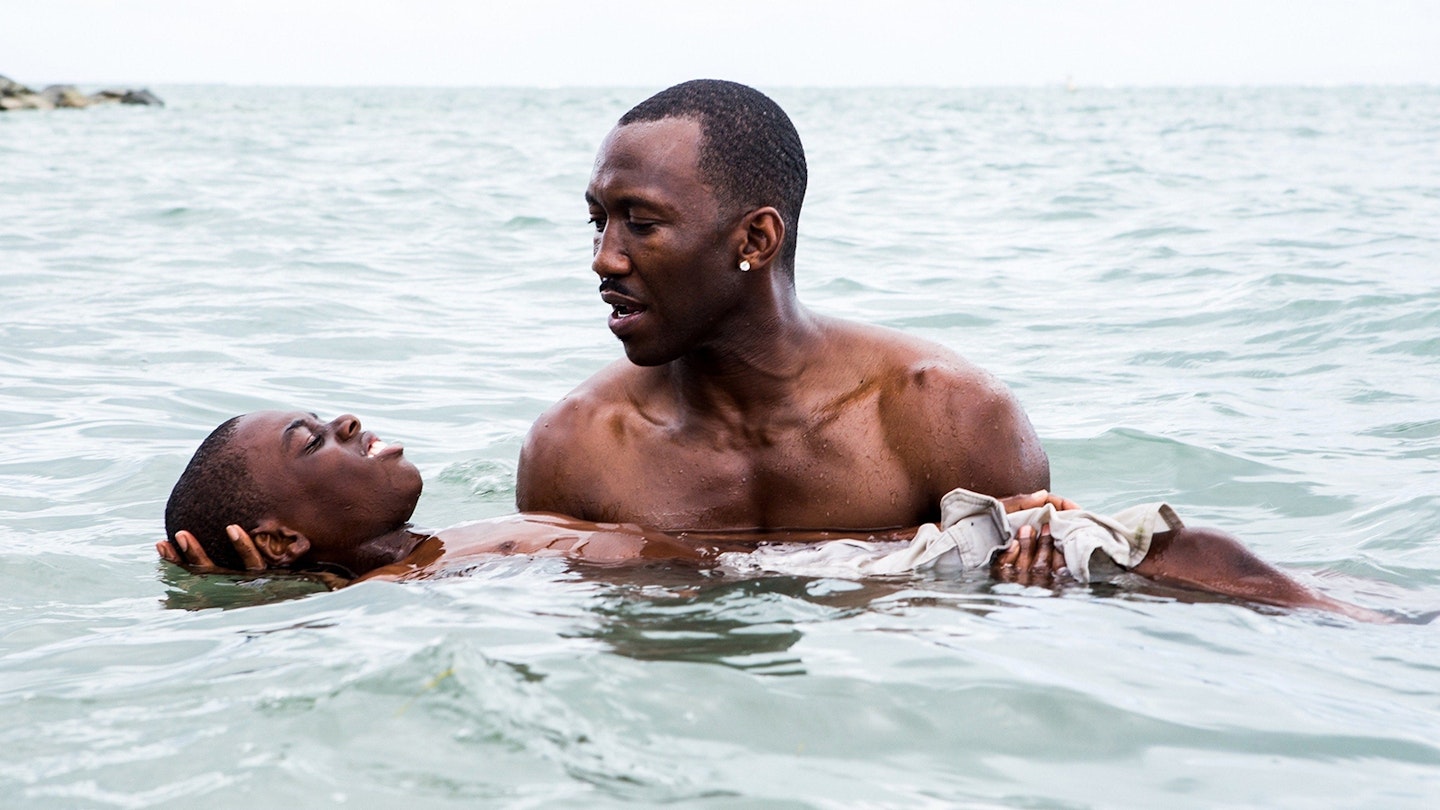In one of Moonlight's most iconic shots, Mahershala Ali's Juan holds Alex Hibbert's Little on the surface of the ocean, his hands gently cradling the boy's head and legs. The water laps around the camera. The score swells. "That right there?" Juan says. "You in the middle of the world." He is teaching Little how to swim. This film will teach you how to feel, as director Barry Jenkins gently guides you through one of the most heartbreaking, moving and beautifully executed character studies in recent cinematic memory.
Moonlight first came into being as an unproduced play, titled 'In Moonlight, Black Boys Look Blue' and penned by Tarell Alvin McCraney back in 2003, after his mother passed away. A semi-autobiographical piece based on McCraney's experience growing up in Miami's Liberty City, it was shelved – until a few years later, when fellow Liberty City kid Jenkins read it and recognised significant overlap with his own adolescence. The pair had grown up mere streets away from each other, but never crossed paths. In 2013, Jenkins was looking for his next project, having made his feature directing debut with 2009's Medicine For Melancholy. It was Moonlight's time.

As in the movie version, the play followed main character Chiron over three periods in his life, but those timelines were interwoven throughout. Jenkins, who penned the screenplay with McCraney's blessing, had the idea to separate them out into distinct chapters. Each required its own lead actor; someone who could capture the essence of Chiron – an aesthetic likeness was less of a priority – at such different points in his life. The youngest was cast first: Alex Hibbert (as 'Little') was a Miami local and a non-actor, found by Jenkins and producer Adele Romanski while scouring schools. Then came the oldest, Trevante Rhodes (as 'Black), whose muscular physicality only serves to expound the soft vulnerability of the man underneath. Teenage Chiron was the trickiest to cast, with relative newcomer Ashton Sanders eventually slotting in.
For all the casting, money and time-related hurdles Jenkins had to overcome in bringing Moonlight to life, none are evidenced on screen.
What's so remarkable about the way these three actors captured one character so intensely is that they never observed each other's performances, a decision made by Jenkins early on. "I didn't want the guys to bear the responsibility of trying to carry the same walking style, the same delivery of certain lines," Jenkins said in 2016. "I felt that would take them out of their own bodies."

Due to scheduling and budgetary restraints, the rest of the cast were also afforded little time to familiarise themselves with each other. Mahershala Ali squeezed in his scenes as Little's father-figure Juan in-between stints working on Netflix's Luke Cage series. Naomie Harris had just three days to shoot her part as Chiron's mother Paula, working around promotional duties for Bond movie Spectre. Initially wary of taking on what could have been a reductive, two-dimensional role of a drug-addicted Black woman, Harris was soon convinced by Jenkins' vision and the personal experience with which he was imbuing the film. Teresa, Juan's partner and a figure of comfort and motherhood for Chiron, is played by musician and creative powerhouse Janelle Monáe in her first significant film role. The talent on display in Moonlight's supporting line-up is extraordinary. Their performances are memorable despite limited screen time, and this speaks to Jenkins' skill as the linchpin of the film, with an ever-shifting cast around him.
For all the casting, money and time-related hurdles Jenkins had to overcome in bringing Moonlight to life, none are evidenced on screen. Every second is immersive, cohesive and mesmerising. The script is minimal and understated. Every word is vital, and yet there is enough freedom and looseness to completely submerge you in Chiron's world. The visuals and James Laxton's cinematography are astonishing, choosing cinematic scale, high contrast and a delicious, deep palette of blues and purples over what could have been dour, grim realism. Jenkins' signature close-ups – high-schooler Chiron daring Kevin (Jharrel Jerome) to hit him; Paula desperately trying to connect with her son; adult Kevin (André Holland) smoking against a wall; Black daring to look the object of his desires in the eyes – enable the audience to become lost in his characters' soulful stares.

Nicholas Britell's melancholy score is one for the ages, with delicately scratchy strings, speedy scales and sombre piano chords giving an otherworldly feel to Chiron's often-concrete surroundings. This is sensual, sparse, patient filmmaking, building Chiron's sense of isolation so effectively that by the time Moonlight reaches its intimate penultimate shot, you feel the impact of a simple, tender touch as intensely as he does. Did we mention that this was only Jenkins' second feature?
On release, it didn't take long for Moonlight's genius to make audiences pay attention to this independent film about a gay Black boy in Miami, the kind of story that so often falls through the cracks of the churning Hollywood machine. It made back double its small budget in weeks. Rave reviews rolled in, as did award nominations, including eight at the 2017 Oscars. It won three in the end: Ali for Best Supporting Actor, Best Adapted Screenplay for Jenkins and McCraney, and, famously, Best Picture.
Faye Dunaway and Warren Beatty being given the wrong card and the whole kerfuffle that followed may be the lasting memory of that night, but here are two other ways Moonlight winning Best Picture should go down in history: it was the first film to do so which features an all-Black cast, and the first film focused on an LGBTQ+ story to take the title, too. Forget that confused yell of, "La La Land!" and producer Jordan Horowitz's pleas to the crowd that no, "This is not a joke." Moonlight is a miraculous, masterful milestone of cinema. That will be its legacy.
